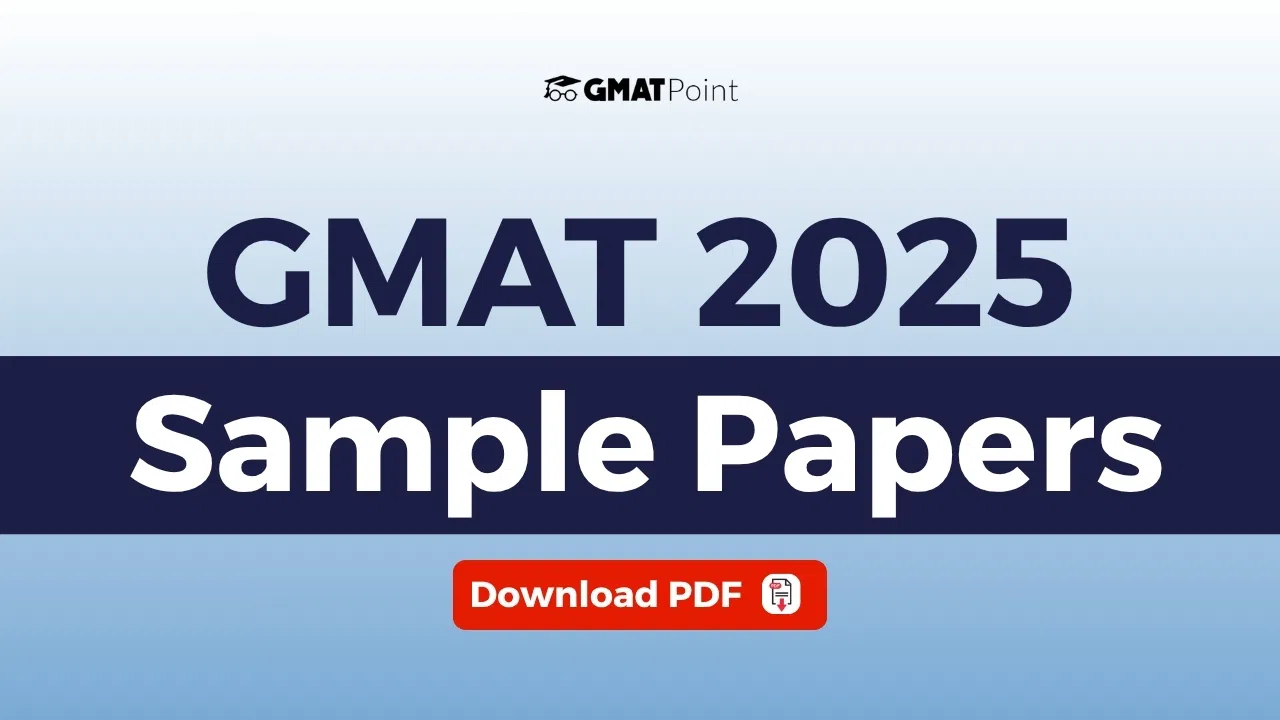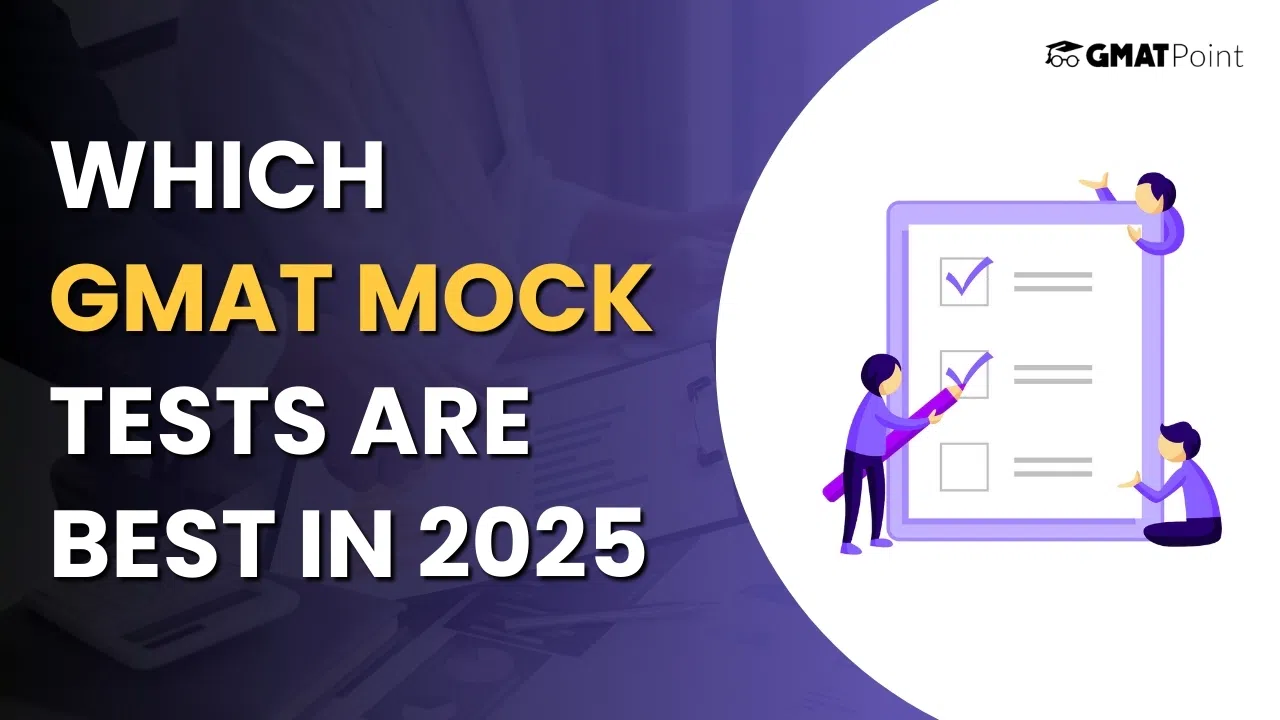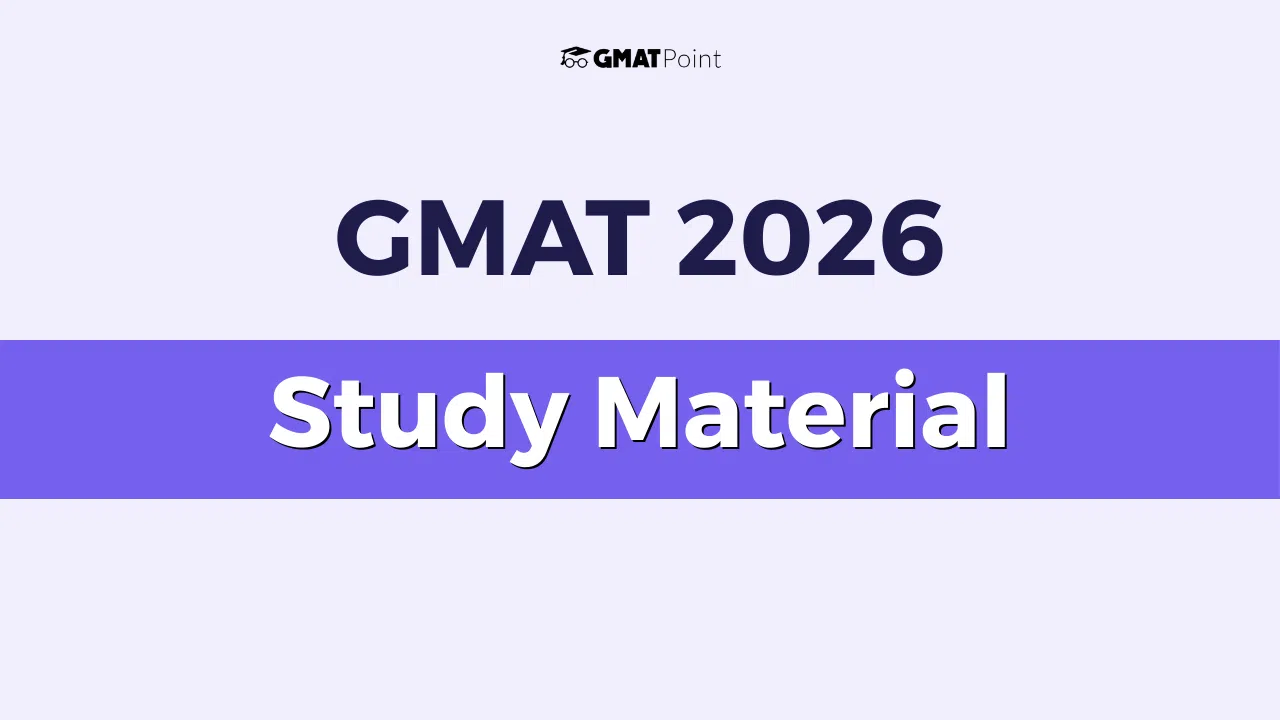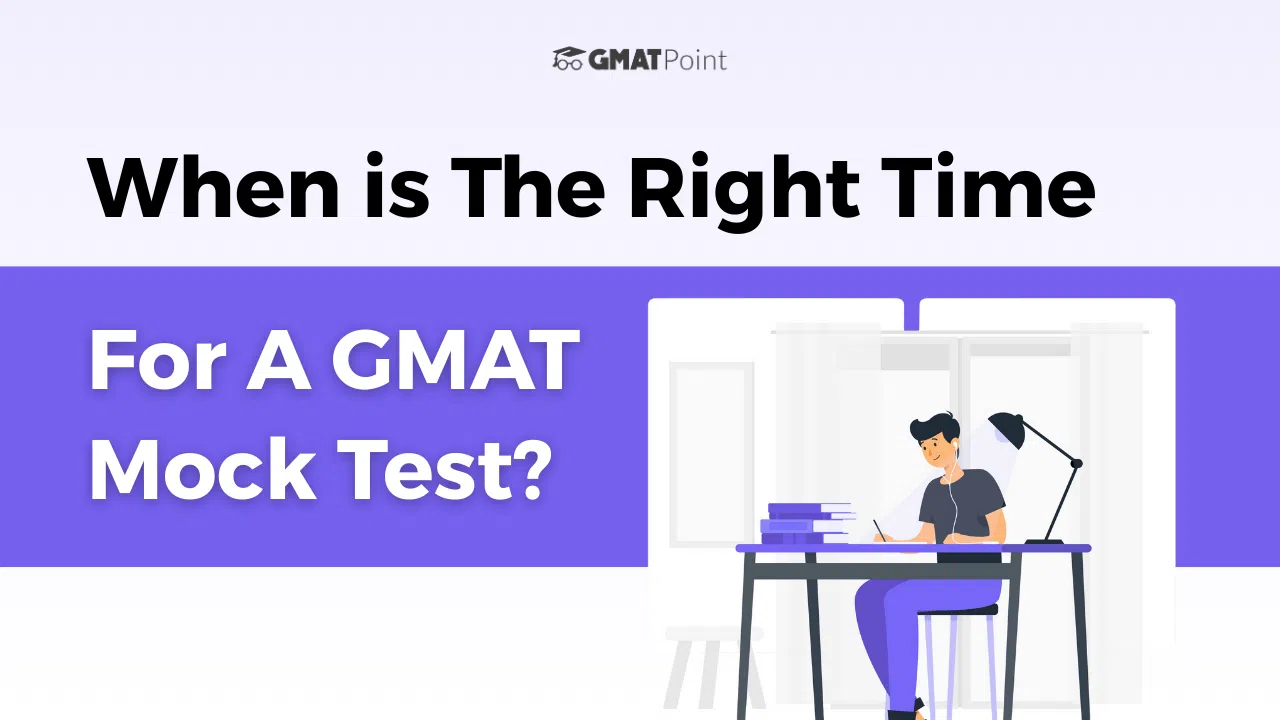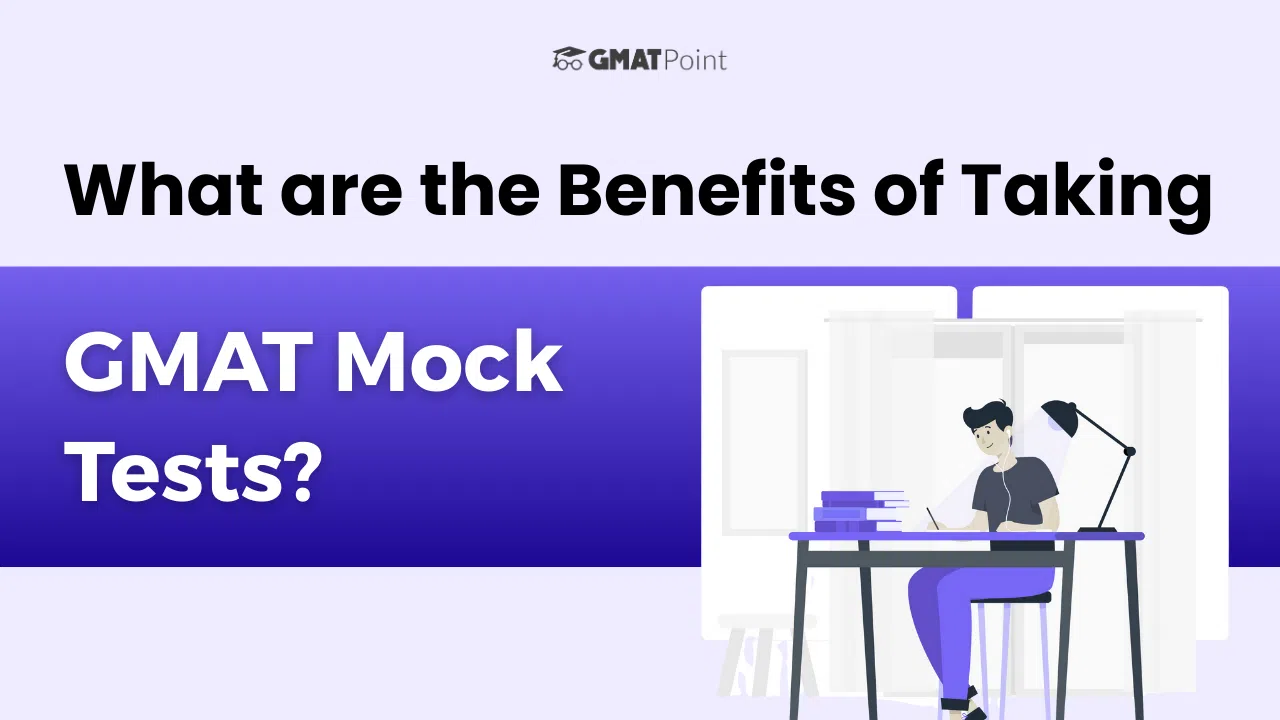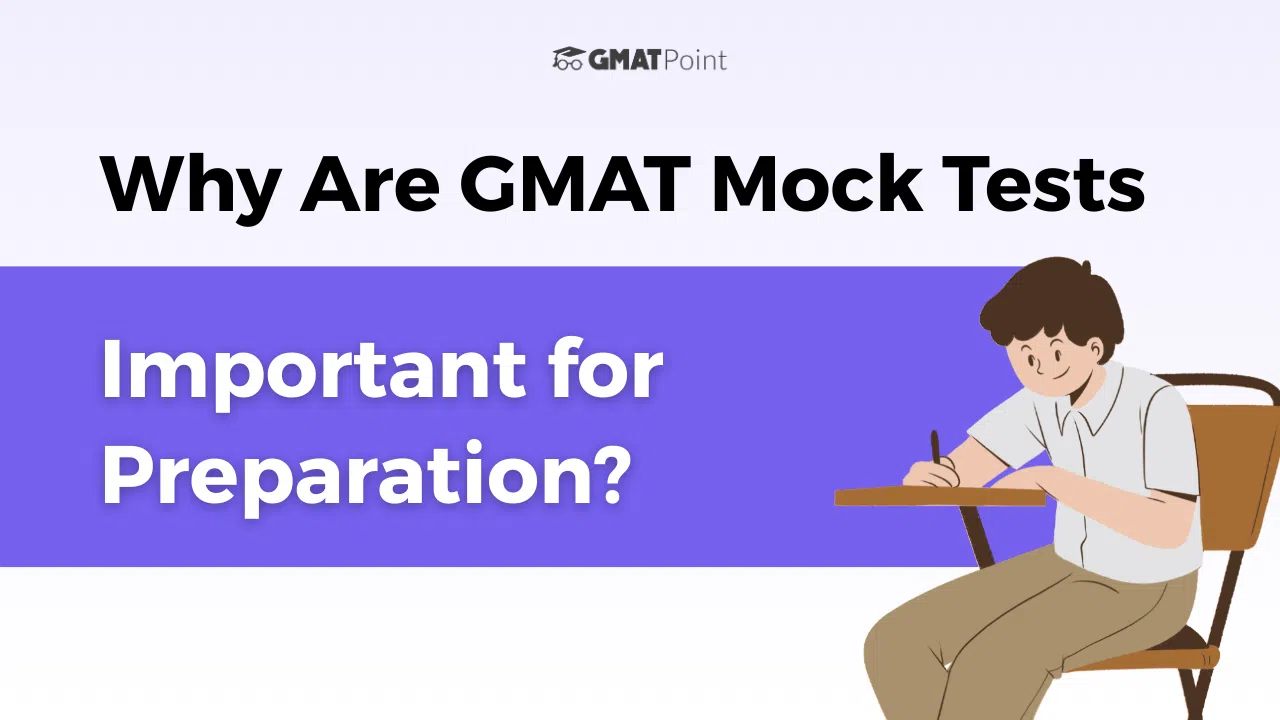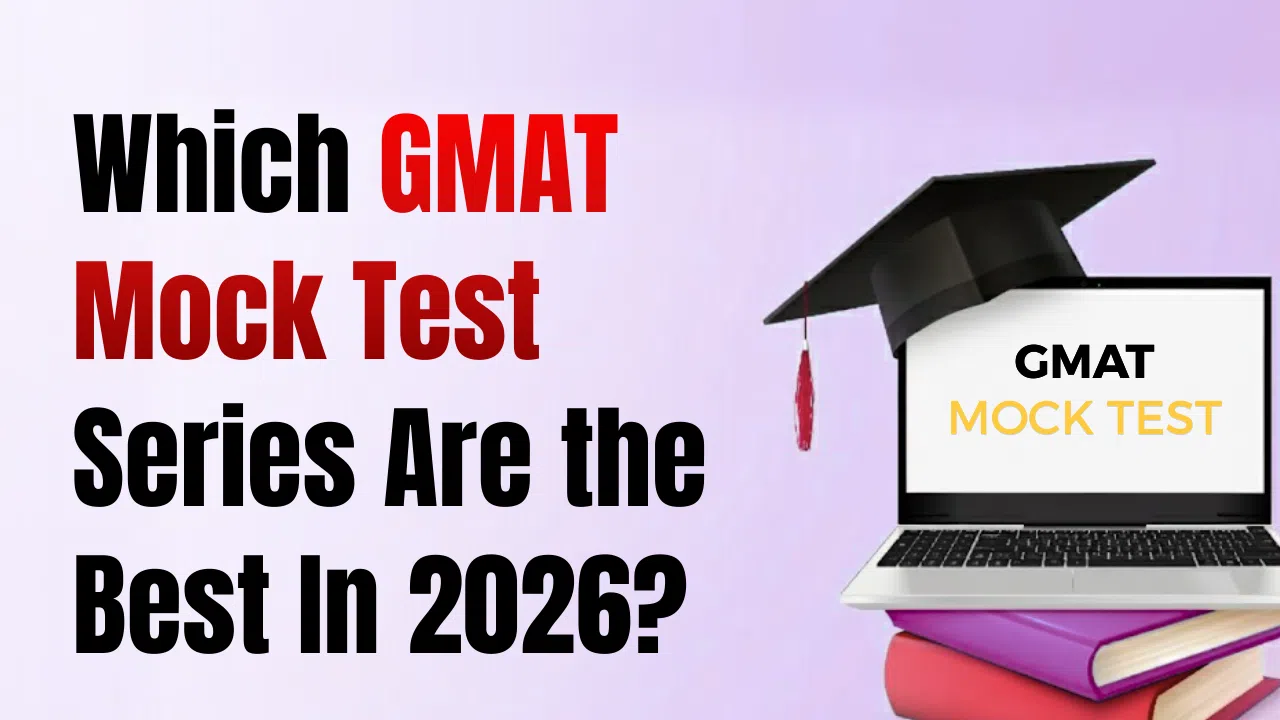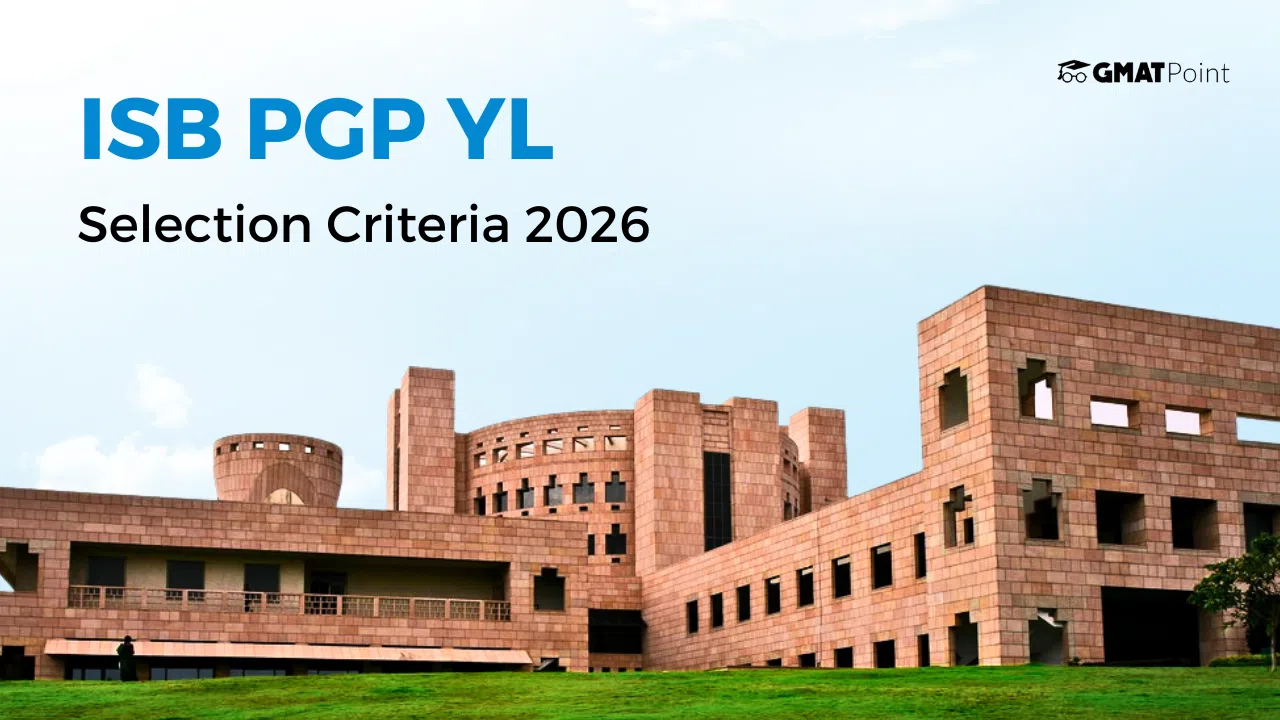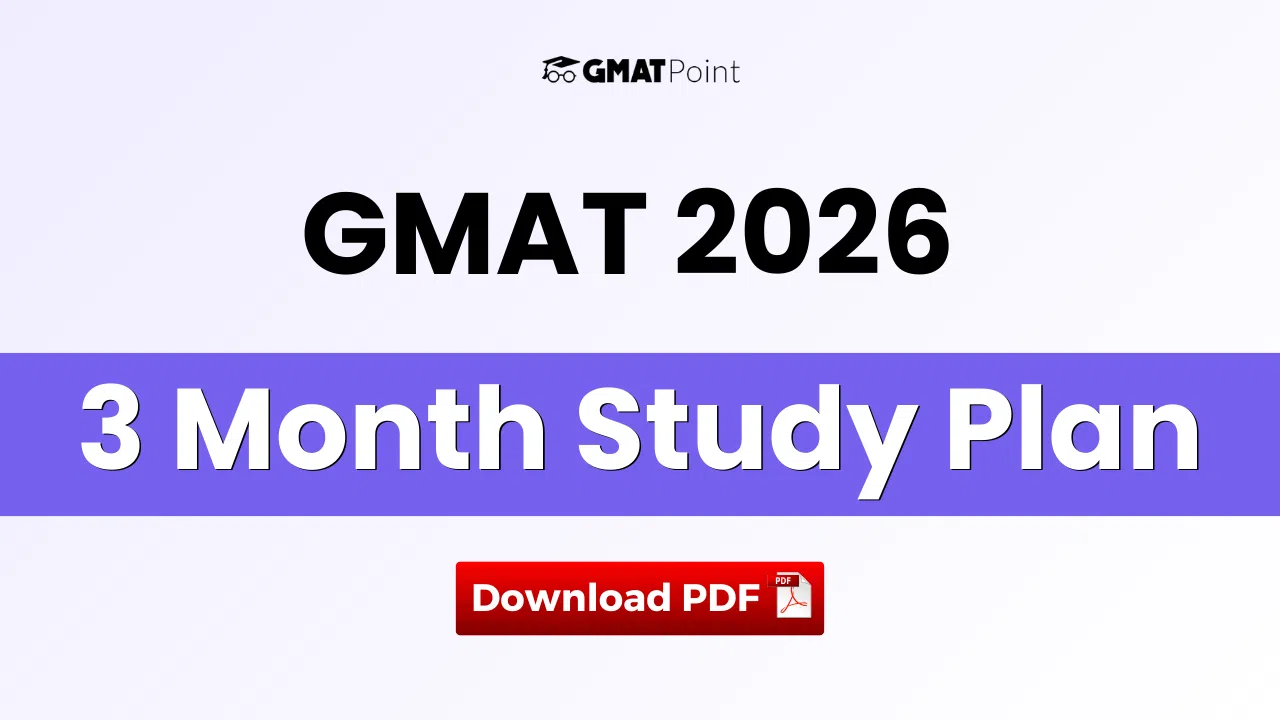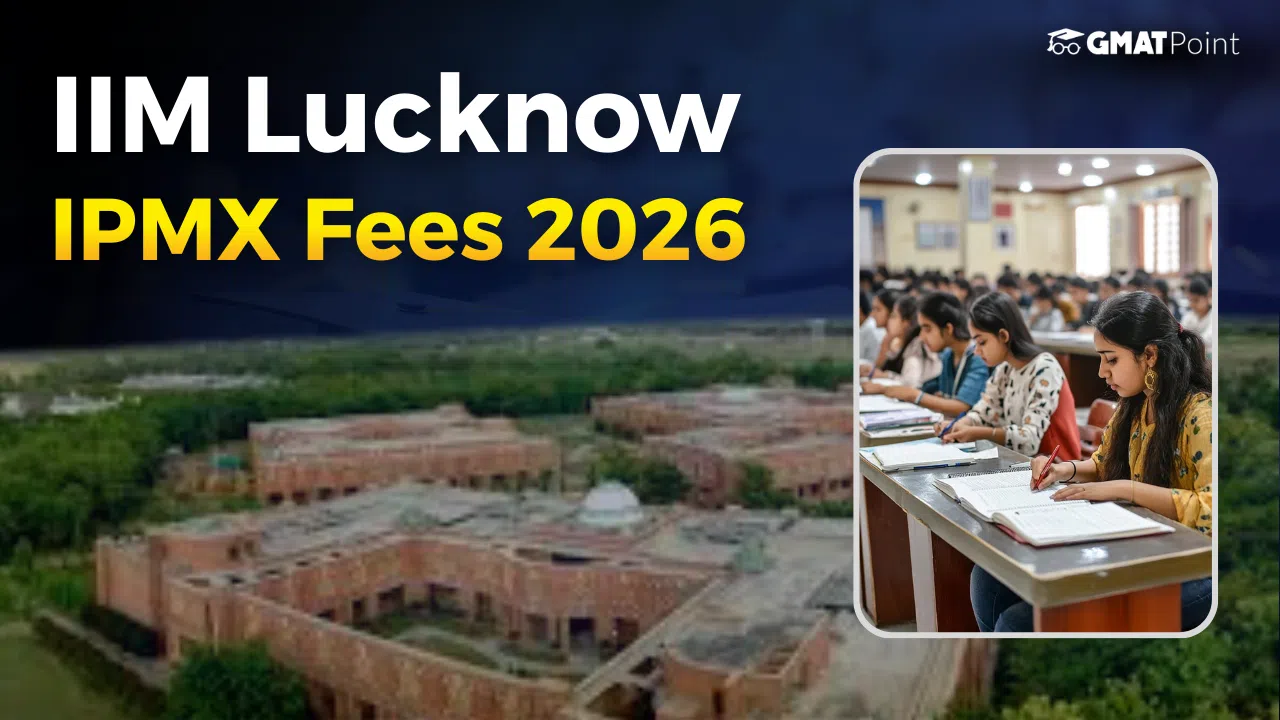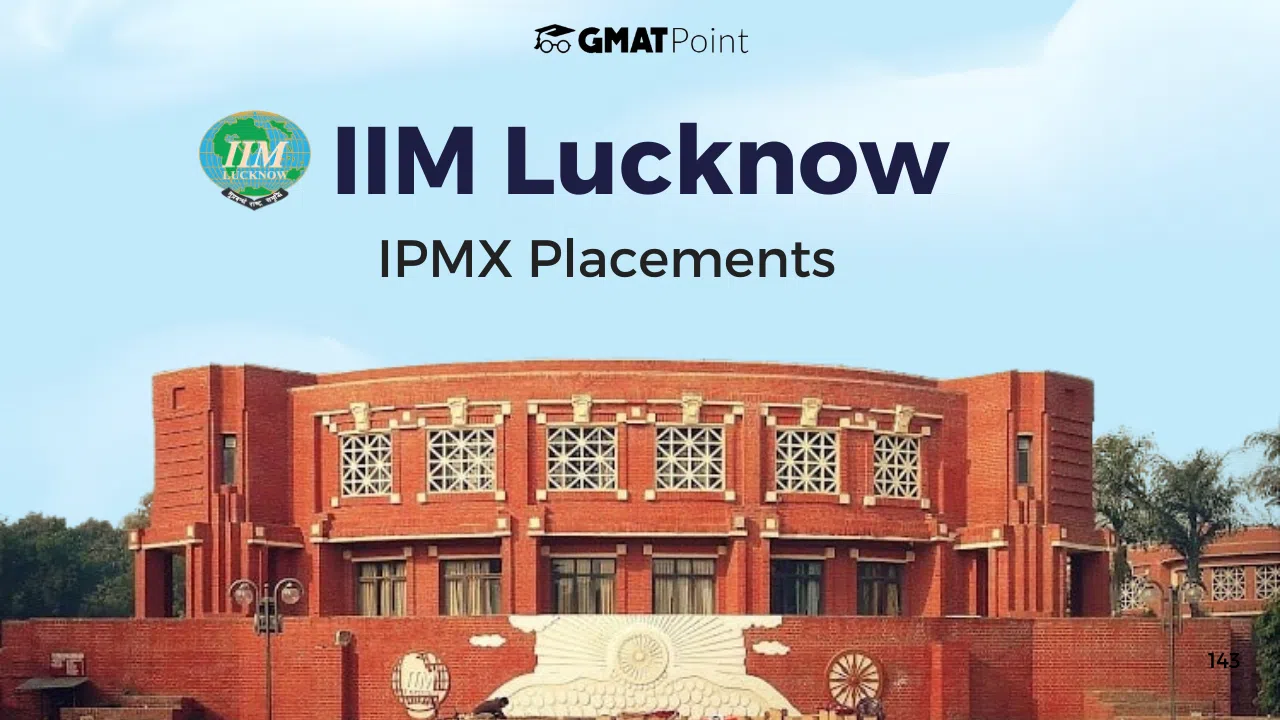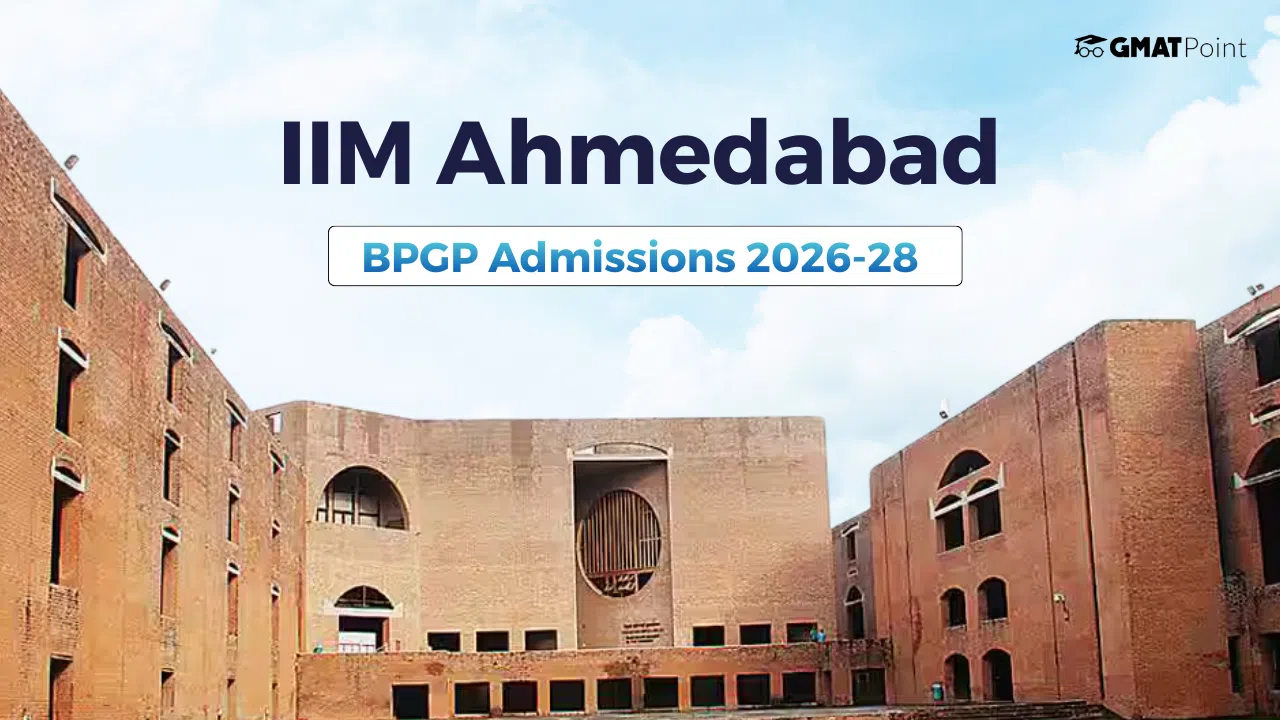To prepare effectively for the GMAT Focus Edition, it's important to choose the right mock tests. This updated exam is shorter and includes Quantitative Reasoning, Verbal Reasoning, and Data Insights. It also no longer has Sentence Correction or the Analytical Writing Assessment. Using old practice tests won't help and could even hurt your preparation. This guide compares top GMAT mock test series from providers like IMS, GMATPoint, T.I.M.E., and Kaplan, offering data to help you select the best resource to practice for the exam and improve your score.
The following table offers a comparison of IMS, GMATPoint, T.I.M.E. and Kaplanfees, discounts and the number of mock tests.
Feature | IMS | GMATPoint | T.I.M.E. | Kaplan |
Mock Test Fees (INR) | ₹16,356 + GST | Mock Test:₹1,999 | Basic and Enhanced Test Series: ₹4,950 - ₹6,950 | ₹4,999 |
Education Bundle with Mock Test Fee | Online Self Paced: ₹16,356 + (18% GST) | Full Course at Just Rs 6000 | Online Course: ₹21,950 - ₹26,450 | GMAT Prep Course $359 - $3200 (Based on international USD pricing) |
Number of Mock Tests | 6 full-length adaptive mock tests. | 10 full-length GMAT Focus Edition mock tests. | 7 Mock tests | 6 GMAT Practice Tests course packages. |
GMAT Mock Test Price Comparison:
- GMATPoint: GMATPoint provides 10 GMAT Focus mocks for ₹1,999. At approximately ₹200 per mock, it is the most cost-effective option for high-volume practice. You need to upgrade to their educational plan to get more data about your performance and analysis. The GMATPoint has exclusively designed the course for the Focus Edition. With 90 90-day validity, it will be a strategic tool for the candidates in the final part of their preparation.
- IMS: IMS does not offer dedicated mock test series like GMATPoint and T.I.M.E., but it offers a self-paced integrated program, priced at ₹19,300 (including GST). In this program, they offer six full-length adaptive mock tests with personalised coaching. IMS provides the IMS Guarantee Certificate after enrollment, which gives you two options: a money-back guarantee (within the first two sessions scheduled from the date of enrollment and before the start of the 3rd scheduled session) and repeat coaching (100% Fee Waiver for one-time repeat coaching within 12 months of program validity from the date of enrollment)
- T.I.M.E.: T.I.M.E. offers two GMAT Mock test series plans, the Basic and the enhanced plan. The Basic plan provides 40-Sectional Tests, 4-Computer-Based Tests, 7-Computer Adaptive Tests and is priced at ₹4,950. The Enhanced Plan provides 90-Sectional Tests, 8-Computer-Based Tests, 10-Computer Adaptive Tests and is priced at ₹6,950. Making it a robust option for candidates who wish to combine full-length practice with targeted drills.
- Kaplan: Kaplan is the premium segment in the market, as it integrates the six official GMAT practice exams into its courses. These are the most authentic mock tests available. Access is bundled within comprehensive programs like the "Self Study Toolkit" course, which starts at $359 (approx. ₹32,000). This option is designed for aspirants for whom test authenticity is the primary concern.
Also Read, When is the Right Time for a GMAT Mock Test?
Key Factors to Consider While Choosing a GMAT 2025 Test Series
Choosing a GMAT mock test series isn't about finding the most questions. It's an important technical decision. Using a series built for the old GMAT is a waste of time. You'll practice things that aren't on the test, like Sentence Correction, and ignore the new, critical Data Insights section.
A good test series for 2025 has to check a few boxes. No compromises.
- It Must Match the GMAT Focus Syllabus: This is non-negotiable. The series has to be built for the Focus Edition from the ground up. That means:
- The Quant section must have zero Geometry questions. The Verbal section must be completely free of Sentence Correction.
- It must include the new Data Insights section, with all five question types accurately represented.
- The Quant section must have zero Geometry questions. The Verbal section must be completely free of Sentence Correction.
- The Algorithm Must Be Accurate: The GMAT is a Computer Adaptive Test (CAT). The questions change based on your answers. A good mock series needs a smart algorithm, not just a static list of questions. The score it gives you should be based on the official 205-805 scale.
- The Analytics Must Be Deep: A great series gives you a detailed breakdown. It should tell you how you did by question type, how much time you spent, and help you log your errors to find patterns.
- It Must Feel Like the Real Thing: The user interface should look and feel exactly like the official GMAT. This includes the "Question Review & Edit" feature, which lets you change up to three answers per section, and the on-screen calculator that you only get for the Data Insights section.
Also Read, How to Analyse a GMAT Mock Test?
When is the Right Time to Start Taking GMAT Mocks?
Don't just take mocks whenever you feel like it. It's a waste of a valuable resource. Think of it as a three-phase process. The role of the mock test changes as you progress.
- Phase 1: The Diagnostic (Week 1-2): Take your first mock early within the first couple of weeks. You don't need to know everything yet. The goal isn't a great score. It's to get a baseline. An honest look at where you stand. This data is gold. It identifies your strengths and weaknesses, allowing you to create a targeted study plan.
- Phase 2: The Progress Check (Mid-Preparation): Once you've covered about 70-80% of the material, it's time to start testing your knowledge under pressure. Take a mock every 7 to 10 days. This will show you if what you're learning is actually sticking. It's also when you start working on your pacing and timing strategies.
- Phase 3: The Final Push (Last 2-3 Weeks): Now it's time to build your brain for the actual exam. In the final weeks, ramp it up to two or three mocks per week. You're training your brain for the 2-hour and 15-minute marathon. Take these mocks like it's the real thing. Same time of day as your actual test. Same 10-minute break. No interruptions.
Also Read, Which GMAT Mock Tests are Best in 2025?
Importance of Giving GMAT Mock Tests Regularly
Taking GMAT mock tests regularly is the single best thing you can do to turn what you've learned into a high score. It’s where theory meets reality. You build your brain, master your timing, and learn to control your nerves.
But here’s the secret. The real work happens after the test is over.
The biggest mistake people make? They look at their score, feel good or bad for a minute, and move on. The learning is in the review. You need to spend 3 to 5 hours going over every single question. Why did you get it wrong? And just as important, why did you get it right? Was it skill or a lucky guess? This is how you improve.
- It Benchmarks Your Performance: Mocks give you the honest truth about where you stand. The detailed reports show you exactly what to work on. Are you bad at probability? Do you struggle with assumption questions? The data will tell you. Keep an error log. It’s like a diary of your mistakes, and it’s one of the best tools for getting better.
- It Builds Mental Strength: The GMAT is a test of endurance. It's 2 hours and 15 minutes of intense focus. You can't just show up and hope for the best. Regular mocks train your brain to handle that pressure without making tired mistakes at the end.
- It Teaches You Time Management: The clock is your biggest enemy on the GMAT. Mocks are your training ground for learning how to pace yourself. You learn to average about 2 minutes per question and, crucially, when to cut your losses on a hard question and move on.
- It reduces Test-Day Anxiety: Why do people underperform on test day? Nerves. The best way to beat anxiety is familiarity. By replicating the test experience over and over, you walk into the test centre feeling like you've been there before. It's just another practice test.



